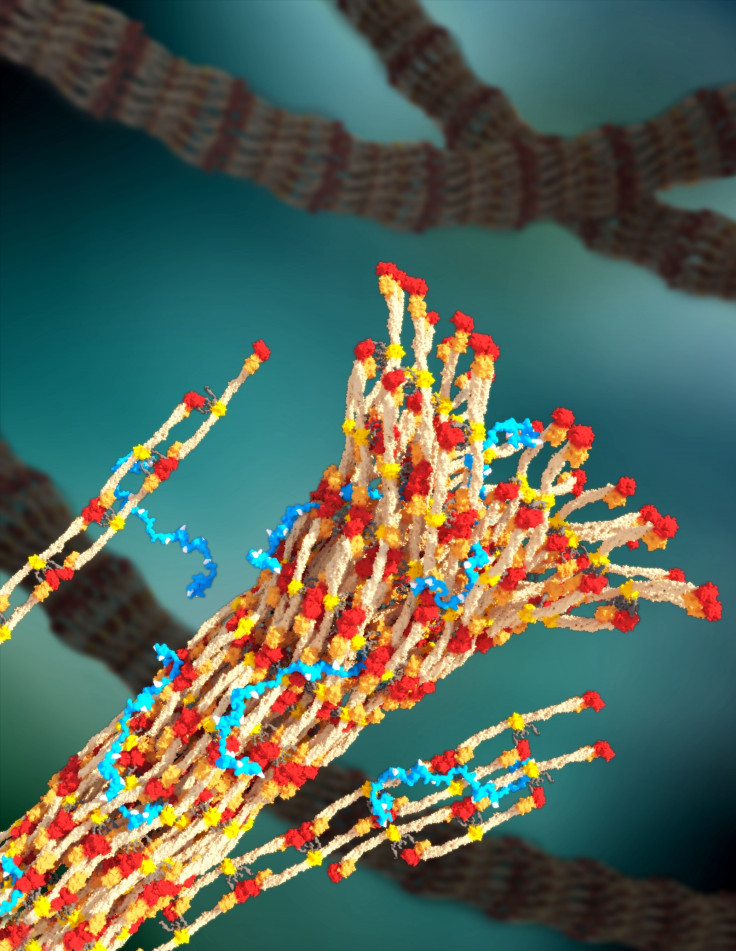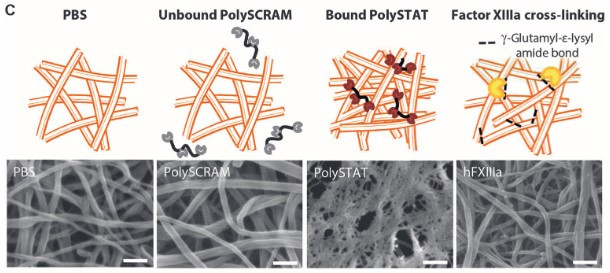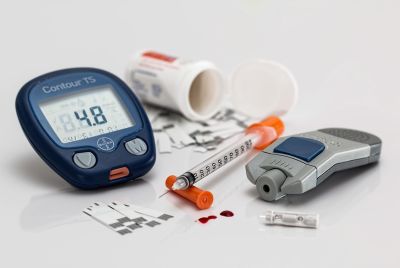PolySTAT: Injection that stops bleeding has potential to save soldiers on battlefield

An injection that stops bleeding and has the potential to save thousands of soldiers on the battlefield has been developed by US scientists.
PolySTAT, which is administered with a simple injection, contains a polymer that strengthens blood clots. It finds any unseen or internal injuries and starts working immediately.
In a study on rats, researchers at the University of Washington found it saved 100% of animals with fatal injuries to the femoral artery. In comparison, just 20% of rats treated with a natural protein to helps blood clot survived.
They say the injection could be ready for clinical trials in humans in five years.
Most battlefield casualties die before reaching hospital – with most fatalities caused through uncontrolled bleeding. After an injury, blood platelets start to congregate to form a barrier but if the pressure of the blood pushing against it is too great, the clot breaks.

Study co-author Dr Nathan White, an assistant professor of emergency medicine, said: "Most of the patients who die from bleeding die quickly. This is something you could potentially put in a syringe inside a backpack and give right away to reduce blood loss and keep people alive long enough to make it to medical care."
Researchers say the injection could also be used for search and rescue missions, as well on car crash victims in rural locations.
Published in Science Translational Medicine, the team began their work by looking at a natural protein that helps strengthen blood clots - factor XIII.
PolySTAT and factor XIII strengthen the clot by binding fibrin strands together and adding in cross-links that reinforce the natural barrier.

However, PolySTAT is more effective in protecting against natural enzymes that dissolve blood clots. These enzymes, which normally help in the healing process, do not target the PolySTAT bonds that have been integrated into the clot – meaning the clot can stay intact in the critical hours after injury.
Findings also showed PolySTAT should not form clots that could lead to an embolism or stroke because of a highly specific peptide that only binds to fibrin at the wound site – it does not bind to the fibrin precursor that circulates through the body.
However, researchers say they now need to test the injection on larger animals and carry out additional screening to find out if it binds to any others substances unintentionally.
Lead author Leslie Chan said: "We were really testing how robust the clots were that formed. The animals injected with PolySTAT bled much less, and 100% of them lived."
© Copyright IBTimes 2025. All rights reserved.






















